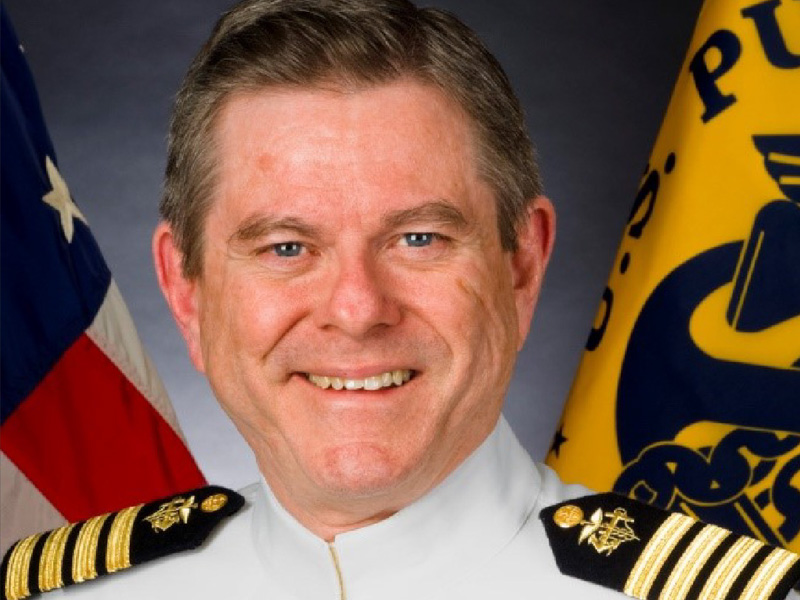
Gilbert Sanders, Ed.D.
2018 Distinguished Alumni
B.S. History '67
Captain (Dr.) Gilbert O. Sanders’s career reads like the return of a native Oklahoma farm boy who comes home as an esteemed, highly decorated uniformed service member and psychological practitioner. He leaves behind a trail of enlightened people living improved lifestyles because of his efforts.
Sanders was born in 1945 as the only child of Richard A. Sanders Jr. and Evelyn Barker Sanders. Gil’s father was a World War II veteran who farmed and worked in the local post office, and his mother was a registered nurse. They were a religious family, and Sanders was preparing to go into the ministry when he went to college. He attended Murray State College prior to his graduation from Oklahoma State University with a bachelor’s degree in 1967 and commissioned as a second lieutenant following completion of Air Force ROTC training. He was assigned to the Public Affairs office of Maxwell Air Force Base and served as the Editor of the "Maxwell-Gunter Post Dispatch," and later as a Liaison Officer for the establishment of the Vietnamese version of the US Air Force’s Squadron Officer School in Nha Trang, Republic of Vietnam. During this time he began his master’s degree training in educational psychology at nearby Troy State University as a step toward his planned entry into the ministry. During his tenure with the US Air Force he met his first wife, the niece of Audie Murphy, the most decorated soldier and Medal of Honor winner from World War II. Murphy persuaded Sanders to transfer to the US Army. Upon completion of Army field artillery training, Sanders was assigned to the 173rd Airborne Brigade in Vietnam.
After three months in Vietnam John Paul Vann, senior advisor for the Second Corps, read in Sanders’ personnel file and seeing that he had a master’s degree in psychology and assigned him to develop the first treatment center for substance abuse in a combat zone of Vietnam. The military urgently needed a treatment facility for the then rampant drug abuse in order to increase the effectiveness of the troops. Sanders’ success in developing the Pleiku Drug Abuse Rehabilitation Center was the final reason Sanders decided to become a psychologist. It was also the start of the military’s choosing to imbed psychologists in combat units.
Sanders obtained his doctoral degree in education and counseling psychology from The University of Tulsa in 1974. He taught psychology, had a private practice while remaining in the Army Reserves, and worked as a Department of the Army civilian as a senior research psychologist working on both the Pershing and Patriot missile systems. In 1981, he was called back to active duty, and in 1989 he transferred to the U.S. Public Health Service and was assigned to the federal prison in El Reno, Oklahoma, as director of Psychology Intern Training and the Substance Abuse Rehabilitation Program. While working in El Reno, he obtained his initial training in psychotropic medications as a medical psychologist. In 1992, Sanders was promoted to director of the Comprehensive Drug Abuse Program at the federal prison in Leavenworth, Kansas. He created the first comprehensive drug treatment program at a maximum-security federal correctional institution.
